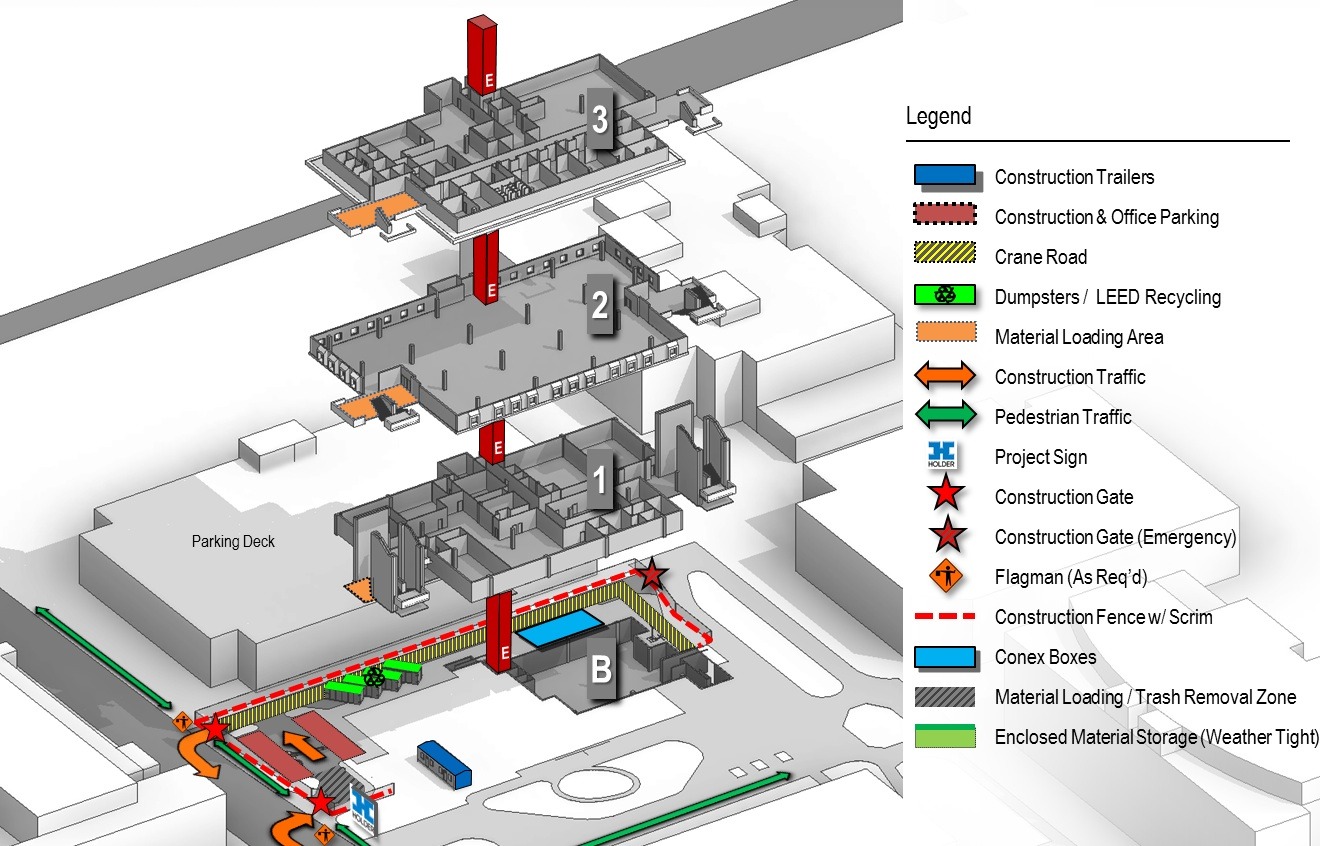Collaboration and data sharing are the root elements at the heart of an intelligent construction site in which people, technology and machines all take part to produce immensely exact, data-enriched information instantly and faultlessly.
This could contain engineering design files, global navigation satellite system (GNSS) survey data, high-density 3-D laser scans, BIM models, planning and scheduling applications, and so forth. Contractors will carry on putting the foundation for a more intelligent construction site by focusing on the assimilation of hardware, software, and mobile technologies. And in this way, contractors can bid and win their projects by cutting the cost of the project.
ORIGINATING A CUSTOMIZED WORKFLOW
The elegance of smart construction technologies and a connected Jobsite rely on the planning and design phases, and new survey data and attributes can be collected and chronicled all the time.
This may comprise GNSS surveying systems, scanning, and optical technology for field data collection, and software for processing captured data. This software can be used in the office or remotely via mobile devices time and again. At the foundation, surveyors and other field crews generally count on optics with preciseness and robotic total stations so that it is easier to read slope distances from instruments to a particular point on the job. These survey technologies amalgamate scanning; imaging and surveying into a great data capture solution. From this, data points can be applied to produce 3-D models.
OPT FOR COMPLETE GNSS SURVEY SYSTEM
A complete survey solution is necessary that consists of field software that can smoothly operate on smartphones, tablets, or controllers. These systems should be synced with the equipment of the survey which empowers the team to share important information from the field to the office in real-time.
USE 3-D LASER SCANNING TO GENERATE ENGINEERING-GRADE SITE MAPS
The laser scanning process is so fast that it is gradually turning out to be an essential technology on an intelligent job site. On the contrary, 3-D scanning is utilized efficiently throughout various stages of the design-construct-maintain (DCM) process, during the planning and design phases, 3-D visualization tools let designers and clients allow seeing how the enhancements can be unified into the existing conditions.
CONSIDER UNMANNED AIRCRAFT SYSTEMS (UAS) IN THE CONNECTED SITE
UAS, an acronym for Unmanned Aircraft Systems which is also addressed as drones, are perfect for surveying and mapping as they can hold a swift collection of HD images. With the help of drones, surveyors can instantly survey a whole project site which is 10 times faster than the traditional survey procedures. UASs offer rich image data by which designers can plan accurately for the very first time.
HIGHLIGHT ON DATA SHARING WITH CLOUD-BASED BIM MODELING
These platforms smooth the progress of tighter teamwork among planners, designers, contractors, and the project owner. Search for cloud-based systems or other web-based software that permits anywhere and anytime admittance to these 3-D models. The outcome is more project control and superior information sharing with access to current models and design changes as they happen.


